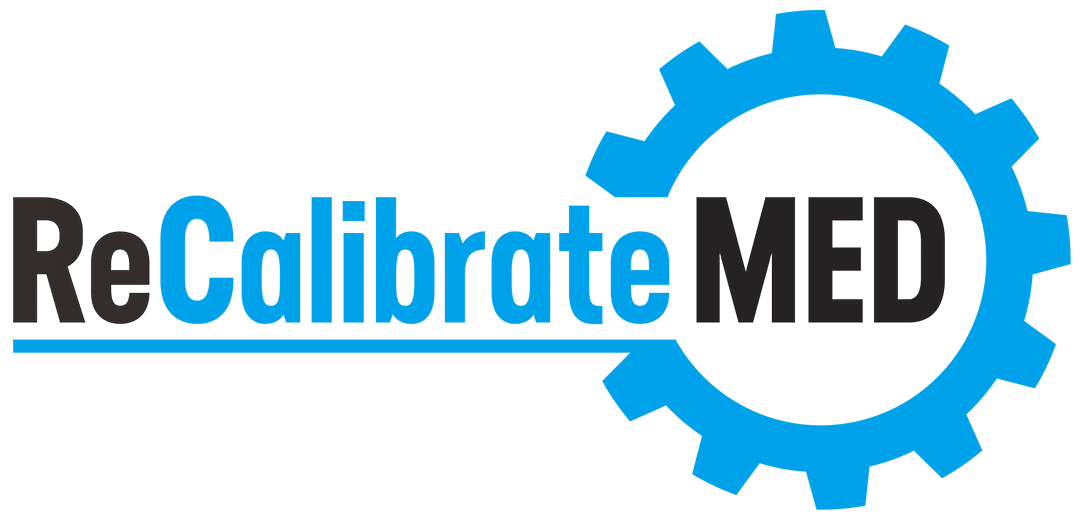Are you tired of relying on hormone therapy to regulate your hormones? Look no further! In this article, we will explore natural ways to balance your hormones and bid farewell to hormone therapy for good. Say hello to a healthier, more holistic approach to hormonal harmony!
Our bodies produce hormones to control various functions, including metabolism, mood, and reproduction. However, factors like stress, diet, and environmental toxins can disrupt this delicate balance, leading to health issues. Fortunately, there are plenty of natural solutions that can help restore hormonal equilibrium.
From incorporating specific foods into your diet to practicing stress-reducing techniques like yoga and meditation, we will guide you through a range of effective strategies. Our expert tips and insights will empower you to take control of your hormonal health and banish the dependency on hormone therapy.
Say goodbye to the side effects and potential risks associated with synthetic hormones. Embrace the power of nature and discover a more sustainable and empowering path to achieving hormonal balance. Get ready to revitalize your well-being naturally.
So why wait? Let’s dive into the world of natural hormone balancing and say farewell to hormone therapy once and for all!
Understanding hormones and their role in the body
Hormones are chemical messengers produced by various glands in our bodies. They play a crucial role in regulating different bodily functions, including metabolism, growth, mood, and reproduction. Hormones are responsible for maintaining a delicate balance, ensuring our bodies function optimally.
When the hormonal balance is disrupted, it can lead to a wide range of health issues. Hormone imbalances can cause symptoms such as fatigue, weight gain or loss, mood swings, irregular menstrual cycles, low libido, and even depression. Identifying the root cause of these imbalances is key to restoring harmony to our bodies.
The negative effects of hormone imbalances
Hormone imbalances can have a significant impact on our overall well-being. For women, imbalances in estrogen and progesterone can lead to menstrual irregularities, fertility problems, and menopausal symptoms. In men, imbalances in testosterone can result in decreased libido, fatigue, and muscle loss.
Aside from reproductive health, hormone imbalances can also affect our mental and emotional well-being. Imbalances in cortisol, the stress hormone, can lead to chronic stress, anxiety, and even contribute to the development of conditions like adrenal fatigue. These imbalances can disrupt our daily lives and hinder our ability to thrive.
Natural ways to balance hormones through diet and nutrition
One of the most effective ways to restore hormonal balance is through a healthy diet and proper nutrition. Certain foods can help support hormone production and regulation in our bodies.
Incorporating foods rich in omega-3 fatty acids, such as fatty fish like salmon and chia seeds, can help reduce inflammation and support hormone production. Cruciferous vegetables like broccoli and cauliflower contain compounds that can aid in estrogen metabolism and balance. Adding more fiber-rich foods like whole grains, fruits, and vegetables can also help regulate hormones by supporting healthy digestion and elimination.
The importance of exercise in hormone balance
Regular exercise not only benefits our physical health but also plays a crucial role in hormone balance. Engaging in moderate-intensity exercises like brisk walking, jogging, or cycling can help regulate insulin levels and improve insulin sensitivity. This, in turn, can help balance other hormones in our bodies, such as estrogen and testosterone.
Additionally, exercise stimulates the release of endorphins, known as the “feel-good” hormones. These endorphins can help reduce stress levels and improve overall mood, contributing to hormonal harmony. Aim for at least 30 minutes of exercise most days of the week to reap the benefits.
Stress management techniques for hormonal harmony
Stress can wreak havoc on our hormonal balance, so it’s important to incorporate stress management techniques into our daily lives. Practices like yoga, meditation, deep breathing exercises, and mindfulness can help reduce stress hormones like cortisol and promote a sense of calm and well-being.
Getting enough sleep is another crucial aspect of stress management and hormonal health. Lack of sleep can disrupt hormone production and regulation, leading to imbalances. Aim for seven to eight hours of quality sleep each night to support optimal hormonal function.
Herbal remedies and supplements for hormone balance
Herbal remedies and supplements can also play a role in restoring hormonal balance naturally. Some herbs, like maca root and chasteberry, have been traditionally used to support hormonal health. These herbs can help regulate menstrual cycles, alleviate menopausal symptoms, and support overall hormonal balance.
However, it’s important to consult with a healthcare professional or a qualified herbalist before incorporating any new supplements or herbs into your routine. They can provide personalized advice based on your specific needs and ensure safe and effective use.
The role of sleep in hormone regulation
Sleep is essential for hormone regulation, and insufficient sleep can disrupt the delicate balance. During sleep, our bodies produce and regulate hormones like growth hormone, melatonin, and cortisol. Disruptions in sleep patterns can lead to imbalances in these hormones, affecting our overall well-being.
To support healthy sleep patterns, establish a consistent sleep routine, create a relaxing sleep environment, and avoid stimulants like caffeine and electronic screens before bedtime. Practicing good sleep hygiene can help optimize hormone regulation and promote a restful night’s sleep.
Avoiding hormone-disrupting chemicals in everyday products
Many everyday products, such as personal care items, cleaning products, and plastics, contain hormone-disrupting chemicals known as endocrine disruptors. These chemicals can interfere with our natural hormone production and regulation, leading to imbalances and potential health risks.
To minimize exposure to these chemicals, opt for natural and organic products whenever possible. Look for labels that indicate products are free from parabens, phthalates, and other harmful chemicals. Additionally, consider using glass or stainless steel containers for food storage instead of plastic containers that can leach harmful chemicals into food.
Seeking professional guidance for hormone balance
While natural remedies and lifestyle changes can be beneficial, it’s important to seek professional guidance when dealing with hormonal imbalances. A healthcare professional, such as a naturopathic doctor or endocrinologist, can help identify the root cause of your imbalances and provide personalized treatment options.
They may recommend hormone testing to assess your current hormone levels and determine the most appropriate course of action. Whether it’s hormone replacement therapy, targeted supplementation, or further dietary and lifestyle modifications, a professional can guide you towards the most effective solutions for your specific needs.
Conclusion: Embracing natural solutions for hormonal health
In conclusion, hormone therapy is not the only option for achieving hormonal balance. By understanding the role of hormones in our bodies and making conscious choices in our diet, exercise, stress management, and product choices, we can naturally restore harmony to our hormonal systems.
Embracing natural solutions for hormonal health allows us to avoid the potential risks and side effects associated with synthetic hormones. It empowers us to take control of our well-being and live a more sustainable and holistic lifestyle. Call us today at (910) 420-0443!





